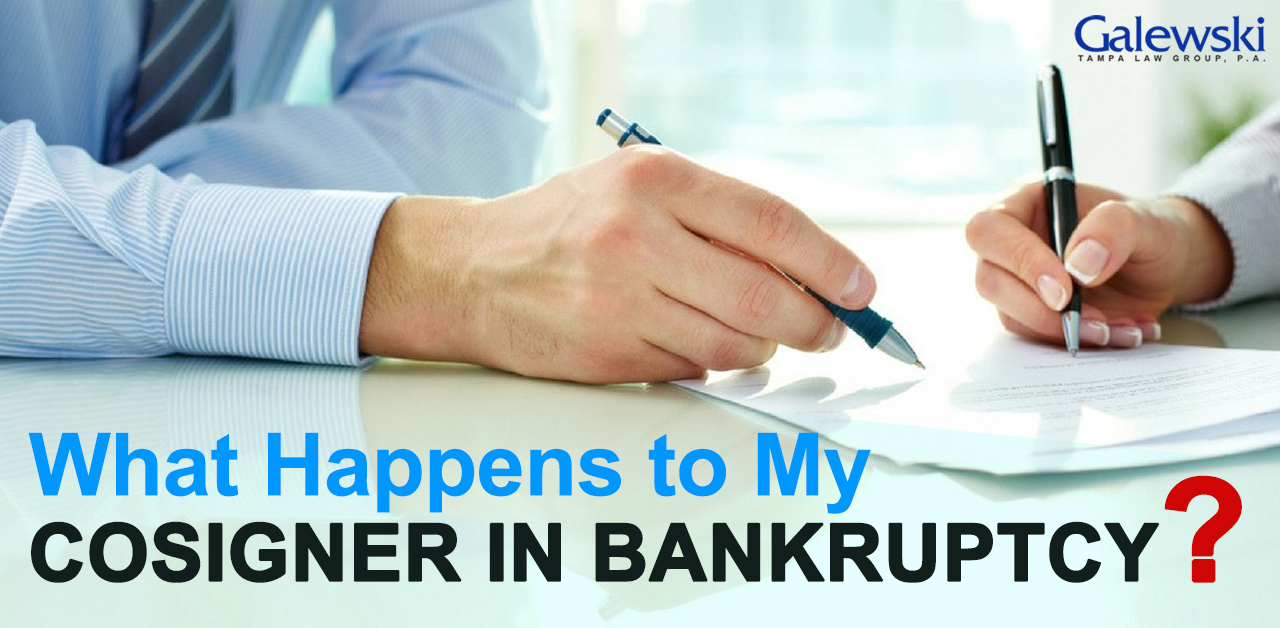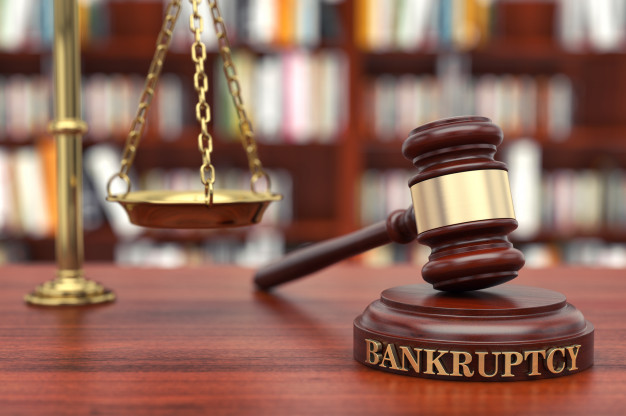What Happens to My Cosigner in Bankruptcy?
When
someone is about to apply for a loan, he may come around this word consignor, a
person who plays an important role while the loan is being sanctioned. The
consigner would be the one who would have signed and thus confirmed that in
case the primary debtor does not meet the timeline and fails to make the
payment; in that case, the consigner will guarantee the payment. So basically
it will be upon the consigner to meet the payment to be made in total. The
consigner would be pretty close to the loan owner; it could be from one’s
family or a close friend. Thus consigner provides a double assurance to the
entity who has sanctioned the loan that if in case the borrower fails to pay he
is liable to make the full payment. From the words of a popular bankruptcy
attorney, a consigner could be considered the most important person between the
parties involved.
So now if in the future borrower is finding it difficult to make the payment and is not able to handle its pressure, he may start thinking of filing a bankruptcy. It will be the only route through which he may try to revive and give a new life to his financial woes. But in that case what happens to the consigner. It is pretty obvious that the borrower shares a very close relationship with the consigner and would be concerned about the consequences the consigner might have to face. The concern is pretty genuine as the consigner has believed in you and has even promised to pay in full if the loan is not paid by the owner of the loan. During the time of filing the bankruptcy, the borrower might have unwillingly pushed the consigner towards the hook of full payment. The consigner in such a case will also be listed as a creditor by the bank. In case if you are facing any such issue, we at Galewski Law firm will provide you the advice from one of the Bankruptcy Lawyers in Tampa, Florida, and will help you sort this issue by making you move towards the best choices you’re left with.
Bankruptcy options
There
are largely two bankruptcy options available for most small businesses and
individuals, the first one is the chapter 7 bankruptcy and the second is the
chapter 13 bankruptcy.
·
In case of chapter 7
bankruptcy, it will help you get relieved from almost all your debts, which
would include your medical debts or your credit card debts, and all your rent
and leases.
·
Now in the case of
chapter 13 bankruptcy, it follows a pretty different route from what chapter 7
bankruptcies provides you, it will help you create a monthly plan of 3 to 5
years where it will pay off your debts in several steps over the years.
A
good conversation with the bankruptcy
attorney might help you understand what’s in your best interest. It will
help you understand that what would be the effect if you either of the
bankruptcy chapters. Which one can be more helpful in your specific case? It’s
important to understand an individual’s situation and then someone would be
able to help you with what will be in your best interest.
Also
Read: What
restaurant owners should know about bankruptcy?
Chapter 7 bankruptcy’s effect on consigners
It
would sound pretty unfortunate but in case of the chapter 7 bankruptcy, it will
not provide any kind of protection to the consigner. The person who has
borrowed the loan and now files for bankruptcy will see all his liabilities
wiped off with the help of chapter 7 bankruptcy. All those personal loans and
liabilities of the borrower would be settled. But in the case of the consigner,
he will be having minimum relief from this, as he would still be hanging on the
hook to settle all the amount of the discharged debts. There are also cases in
the chapter 7 bankruptcy when the prime borrower would be entitled to keep
paying his debts of a home loan or other loans of auto, to make sure that the
debtor is allowed to keep his car and his home even after the bankruptcy. This
will lead to some level of relief for the consigner for the impact on him would
be minimized to some extent.
Now
in case the prime borrower is not willing or is not able to pay the debt on
these loans at all under the chapter 7 bankruptcy, it will directly impact the
consignor who would now be entitled to pay all those debts or else get ready to
file for the bankruptcy as well. Bankruptcy Lawyers in Tampa, Florida always
advise that in these difficult situations, the prime borrower should coordinate
well with the consignor and after filing for the chapter 7 bankruptcy, If at
any point feels that he won’t be able to pay the debt or of decides to stop
paying the debt suddenly, he should inform the consignor timely so he may, in
turn, make the right decisions which may fall in his best interest.
Chapter 13 bankruptcy’s effect on consigners
Chapter
13 bankruptcy has its own set of
proceedings, where the prime borrower has the opportunity to keep paying the
loan, and this allows the consigner to have a sense of protection from the
immediate effect that could have graveled him if not this case. The consigner
is therefore safe until the debtor is fulfilling his responsibility instead of
backing out abruptly. The consigner therefore won’t be contacted by the
creditor and be asked to pay the debt in full at the earliest. Though such a
case applies only if-
1.
The consigner is not a
corporation or a partnership but instead is an individual
2.
He didn’t become liable
for debt during the ordinary course of the business
3.
The debt in such case
should be a consumer debt, which constitutes a loan taken for personal reasons,
household or family reasons.
If
all these guidelines are properly met, the stay for any action against the
consigner would be applied until in case the creditor asks the court to live
any such clause. The creditor can ask it to be lifted in a few specific cases-
1.
If the consigner has
received the debt consideration (i.e the loan fund which was used to purchase
property were received by the consigner)
2.
If the payment of that
debt were not included in the chapter 13 plan.
3.
Or the interests of the
creditor are being harmed due to this stay.
In
case the court agrees to live this stay, then the creditor will have the full
and immediate rights to collect all the debt from the consigner directly. There
are also cases when the creditor decides to proceed against the consigner if
the bankruptcy under chapter 13 is dismissed for any reason or is converted to
chapter 7 bankruptcies.
If
you’re willing to file the chapter 13 bankruptcy in Tampa, Florida, we at Galweski
Law Group are more than willing to help you in these difficult times.
We would be happy to advise you after a good analysis of your case and will
make sure that you and the consigner do not remain under any sort of pressure
and the case is dealt with in smooth proceedings.





Comments
Post a Comment